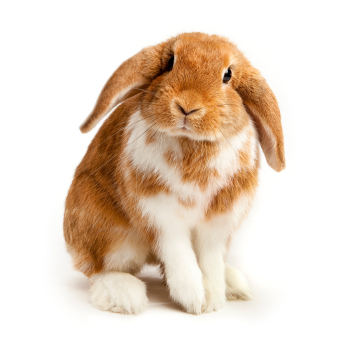Vaccinations for your Rabbit
There are three infectious rabbit diseases for which protective vaccines are available.
Both of these diseases are fatal and occur in both wild and pet rabbits. These diseases are Myxomatosis and Viral Haemorrhagic Disease (VHD) and Viral Haemorrhagic disease 2 .
WHAT IS MYXOMATOSIS?
Myxomatosis is a viral disease which causes an infected rabbit to become depressed, have a temperature and stop eating. It is characterised by swellings and sticky discharges around the eyes, nose and genital areas; other swellings are found on the skin. Secondary respiratory infections are common. Treatment is rarely successful and affected rabbits suffer a great deal. There is also a much less common dry form of the condition which presents with mild lethargy and lumpy lesions on the skin – these cases can be successfully treated.
How is myxomatosis spread?
Myxomatosis is spread by biting insects, usually fleas or mosquitoes. As mosquitoes can fly, even if a rabbit has no contact with other pet rabbits or wild rabbits it will still be at risk. Even house rabbits can be bitten by flying insects.
How often do I need to vaccinate my rabbit against myxomatosis?
Your rabbit can be vaccinated from 6 weeks of age. We then repeat the vaccination every 6 months throughout life. We now have a new yearly vaccination available. For further information, ask any staff at your preferred branch.
Are there any side effects of myxomatosis vaccination?
Occasionally a small lump may come up at the injection site a week or so after injection. This should settle down over the following few weeks but if it does not, please contact us to examine your pet.
WHAT IS VHD?
Viral haemorrhagic disease (VHD) is a viral disease of rabbits, which is rapidly fatal. Sadly, as it progresses so quickly, often the first clinical sign of VHD is a dead rabbit. Otherwise, affected animals may be found depressed, collapsed and/or with haemorrhagic (bloody) diarrhoea.
How is VHD spread?
VHD is spread through direct contact or so called ‘fomites’, which are contaminated items which have come into contact with a diseased animal. The virus is very hardy and survives for a long time in the environment – this means that it can be easily brought into your home or garden on contaminated clothes, shoes, food and bedding.
How often do I need to vaccinate my pet against VHD?
Vaccination can start at 10 to 12 weeks of age. We recommend that it is then repeated annually.
Are there any side affects of VHD vaccination?
A small lump may appear at the vaccination site which should settle in a couple of weeks. Some rabbits may also have a slight temperature for a few days after vaccination – if so, they may be a little bit quiet and slightly off their food. Please contact us should you have any concerns after vaccination.
Are there any other benefits of vaccinations?
Before any vaccination is given a full clinical examination is performed and there is also an opportunity for you to discuss the health and management of your pet. As a result, other health issues can be identified and dealt with before a problem occurs. This is especially important with rabbits as they are renowned for ‘hiding’ illness until they are very sick indeed.
A new strain of the disease, RHD2, causes fewer symptoms than the initial strain of virus, and sadly often results in sudden death.
This strain is also included in the yearly vaccination we offer.



